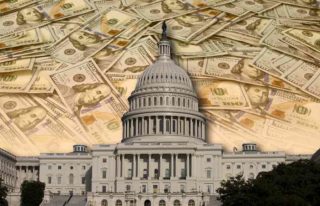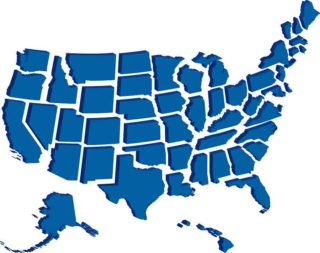
Where does all this money go? Do you really have to pay taxes? Besides income tax, are there other taxes? Keep reading to get answers to these questions and more.
Why Do You Pay Taxes?
To put it simply, taxes cover the cost of government programs. Taxes fund everything from schools to roads to the police to the military and all kinds of things in between. However, not all taxes go to the same pool. Federal, state, and local governments all collect taxes, and even within these groups, the taxes may be distributed between different agencies or earmarked for specific projects.
What Types of Taxes Are There?
Taxes fall into a variety of different categories, including the following:
- Federal personal income tax — Assessed on income earned by individuals.
- Federal corporate income tax — Assessed on corporate profits.
- Payroll tax — Individual Medicare premiums and Social Security contributions as well as matching amounts paid by employers.
- Self-employment tax — Payroll tax paid by self-employed people who pay both their and the employer’s portion of Social Security contributions and Medicare premiums.
- Capital gains tax — Tax assessed on income earned through investments.
- Sales tax — Assessed by state governments on the sale of goods and services.
- Excise tax — Assessed by the federal government on certain goods like fuel, alcohol, and tobacco.
- Tariffs — Assessed on goods such as gasoline or activities such as wagering or using trucks on highways.
- Estate tax — Assessed by the federal government (and some state governments) on estates over a specific value.
- Inheritance tax — Assessed by some states on inheritances over a particular value.
How Much Do U.S. Governments Collect in Tax?

Collectively state governments collect about $1.7 billion in tax revenue per year. Tax revenue sources vary a lot from state to state simply because some states don’t have an income tax or sales tax, but overall, about 24% of state tax revenue comes from sales tax, 18.5% is collected from universities, public hospitals, and toll roads, and 18.4% from state income tax.
The other third of state revenue actually comes from the federal government. In other words, people and businesses pay tax to the federal government, and then, the federal government distributes some of the funds to the states.
Municipal governments, school districts, and counties also collect about $1.5 trillion in tax every year. Roughly 32% comes from payments made to these groups by their state governments and 4% from the federal government. Another 30% comes from property taxes, and 23% comes from water, sewage, and parking meters. Some municipalities also assess income tax, but the amount collected is negligible as a percentage of the total tax collected by all municipal governments.
How Does the Government Spend Taxes?
Now that you have a sense of where the tax money comes from, you’re probably wondering what the government does with those trillions of dollars. Although the budget changes slightly from year to year, there are a lot of consistencies over time. Currently, the government spends about $4.7 trillion per year, which is about $1 trillion more than it collects.
At the time of writing, the federal government’s most significant expense is $1.1 trillion every year for Social Security payments made to retirees, disabled people, and survivors (children and widows). These funds come from a special Social Security trust fund, and Social Security contributions fund them. Considered to be a “payroll” tax, Social Security contributions are not the same as income tax.
As of 2019, workers pay 6.2% of their income up to $128,400 in Social Security contributions, and their employers have to make a matching payment. If you’re self-employed, you make both parts of the payment. But in all cases, you don’t owe any Social Security on earnings over the $128,400 threshold.
Similarly, with an annual total of $679 billion, the government’s third-largest expense is Medicare, which is health coverage for seniors. This program gets funded by Medicare contributions, but they only cover about 60% of the total cost. The federal government picks up the rest of the tab out of the general budget.
Again, although the exact expenses vary from year to year, the breakdown tends to stay relatively similar from year to year. Here is a look at some of the federal government’s top expenses.
- $989 billion — Defense including the military, Homeland Security, and the Department of Veteran’s Affairs.
- $479 billion — Interest payments on liability from the federal government running on a deficit. In contrast, state and local governments must balance their budgets.
- $403 billion Medicaid — Health care coverage for residents with income under a certain threshold.
- $357 billion — Social safety net programs (welfare, food stamps, low-income housing assistance, the Earned Income Tax Credit, etc.) for families and individuals.
- $133 billion — Federal retirement funds
- $104 — Food assistance
- $89.6 billion — Health and Human Services (the administrative arm of Medicare/Medicaid)
- $70 billion — Education
- $41 billion — Internal affairs (foreign aid)
- $39 billion — Energy and environment
- $36 billion — Unemployment
- $26 billion — Transportation
- $21 billion — NASA
Within those totals, there are a lot of funds devoted to specific programs. For instance, approximately $200 billion earmarked for defense goes to an emergency fund primarily devoted to overseas contingency operations to cover the cost of wars but also disaster relief for hurricanes, wildfires, etc..
Several other programs receive less than $50 billion, which is arguably a negligible amount when you consider that it’s only about 1% of the total federal budget.
How Do States Spend Tax Money?

As you can see, states spend the majority of their funds on programs that directly help residents. However, the breakdown can vary. For instance, on average, states spend 41% of their total budgets on education, which equates to 26% on K-12 education and 15% on higher education.
However, Vermont spends almost half (48%) of its budget on K-12 education, while South Dakota only spends about 16.7% of its budget on K-12 education. To give you another example of the potential spending differences from state to state, Wyoming spends 8% of the budget on Medicaid, while Missouri spends about 27% of its budget on that healthcare program.
States also spend a significant portion of their budgets on economic development. This type of spending is designed to encourage economic growth in states, and it includes programs to attract businesses, increase tourism, improve the workforce, and more. Traditionally, a lot of economic development includes cutting taxes to attract businesses but states also focus on infrastructure such as roads, bridges, schools, etc. to support growth and improve their local economies.
Do All People Pay Tax?
Only 56% of Americans pay federal income tax — that number actually decreased with the Tax Cuts and Jobs Act. That said, even if you’re in the 44% of Americans who don’t pay federal income tax, you can still end up with a tax bill at the end of the year for your Medicare and Social Security contributions. Self-employed people, in particular, are likely to face a tax bill based on those payroll taxes regardless of how much they earn overall.
Even if they don’t pay federal income tax, almost all Americans pay some tax. If you live in one of the 45 states with a sales tax, you pay sales tax on a variety of purchases. Similarly, you may pay state income tax unless you reside in one of the states (Alaska, Florida, Nevada, New Hampshire, South Dakota, Tennessee, Texas, Washington, and Wyoming) that don’t have an income tax. If you buy gas, alcohol or a variety of other products, you pay an excise tax, and you may not even notice because that tax is built into the price, rather than added on at the cash register.
What Should You Do If You Have an Unpaid Tax Bill?
Owe tax? Have unpaid taxes owed? Wondering what to do? Unfortunately, you can’t dictate where your tax dollars go (other than voting, of course), but you can get your taxes owed under control. To get help dealing with the IRS, contact us today. We can connect you to a tax professional who can help you eliminate fees, set up payments, or potentially even reduce the amount you owe.


Leave a Reply
You must be logged in to post a comment.